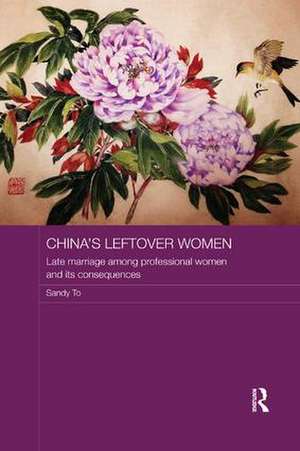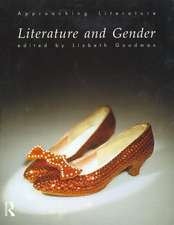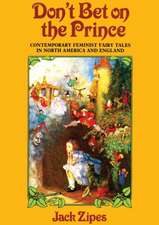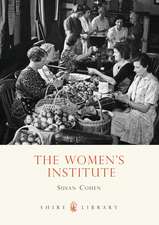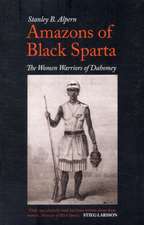China's Leftover Women: Late Marriage among Professional Women and its Consequences: ASAA Women in Asia Series
Autor Sandy Toen Limba Engleză Paperback – 12 oct 2017
| Toate formatele și edițiile | Preț | Express |
|---|---|---|
| Paperback (1) | 312.43 lei 6-8 săpt. | |
| Taylor & Francis – 12 oct 2017 | 312.43 lei 6-8 săpt. | |
| Hardback (1) | 1053.92 lei 6-8 săpt. | |
| Taylor & Francis – 5 mai 2015 | 1053.92 lei 6-8 săpt. |
Din seria ASAA Women in Asia Series
- 15%
 Preț: 333.80 lei
Preț: 333.80 lei -
 Preț: 449.41 lei
Preț: 449.41 lei - 18%
 Preț: 1162.84 lei
Preț: 1162.84 lei - 26%
 Preț: 819.91 lei
Preț: 819.91 lei -
 Preț: 436.14 lei
Preț: 436.14 lei - 14%
 Preț: 325.34 lei
Preț: 325.34 lei - 12%
 Preț: 312.43 lei
Preț: 312.43 lei - 18%
 Preț: 1053.16 lei
Preț: 1053.16 lei - 18%
 Preț: 1167.36 lei
Preț: 1167.36 lei - 18%
 Preț: 1057.13 lei
Preț: 1057.13 lei - 18%
 Preț: 1108.42 lei
Preț: 1108.42 lei -
 Preț: 389.38 lei
Preț: 389.38 lei -
 Preț: 440.77 lei
Preț: 440.77 lei - 18%
 Preț: 1162.71 lei
Preț: 1162.71 lei -
 Preț: 449.41 lei
Preț: 449.41 lei - 18%
 Preț: 1166.68 lei
Preț: 1166.68 lei - 18%
 Preț: 1055.81 lei
Preț: 1055.81 lei -
 Preț: 284.78 lei
Preț: 284.78 lei -
 Preț: 486.42 lei
Preț: 486.42 lei - 18%
 Preț: 1223.61 lei
Preț: 1223.61 lei - 16%
 Preț: 312.43 lei
Preț: 312.43 lei - 18%
 Preț: 1052.38 lei
Preț: 1052.38 lei - 18%
 Preț: 1054.71 lei
Preț: 1054.71 lei -
 Preț: 461.66 lei
Preț: 461.66 lei -
 Preț: 486.98 lei
Preț: 486.98 lei -
 Preț: 412.37 lei
Preț: 412.37 lei - 18%
 Preț: 1062.98 lei
Preț: 1062.98 lei -
 Preț: 447.17 lei
Preț: 447.17 lei - 18%
 Preț: 1062.98 lei
Preț: 1062.98 lei - 18%
 Preț: 999.82 lei
Preț: 999.82 lei -
 Preț: 409.69 lei
Preț: 409.69 lei - 18%
 Preț: 1064.01 lei
Preț: 1064.01 lei - 18%
 Preț: 1327.80 lei
Preț: 1327.80 lei - 18%
 Preț: 1057.05 lei
Preț: 1057.05 lei - 18%
 Preț: 727.19 lei
Preț: 727.19 lei
Preț: 312.43 lei
Preț vechi: 356.64 lei
-12% Nou
Puncte Express: 469
Preț estimativ în valută:
59.78€ • 62.64$ • 49.42£
59.78€ • 62.64$ • 49.42£
Carte tipărită la comandă
Livrare economică 12-26 aprilie
Preluare comenzi: 021 569.72.76
Specificații
ISBN-13: 9781138554221
ISBN-10: 1138554227
Pagini: 218
Dimensiuni: 156 x 234 x 20 mm
Greutate: 0.45 kg
Ediția:1
Editura: Taylor & Francis
Colecția Routledge
Seria ASAA Women in Asia Series
Locul publicării:Oxford, United Kingdom
ISBN-10: 1138554227
Pagini: 218
Dimensiuni: 156 x 234 x 20 mm
Greutate: 0.45 kg
Ediția:1
Editura: Taylor & Francis
Colecția Routledge
Seria ASAA Women in Asia Series
Locul publicării:Oxford, United Kingdom
Public țintă
Postgraduate and UndergraduateCuprins
Preface 1. Highly Educated, Accomplished ... and Unmarried: Introduction to China’s ‘Leftover Women’ 2. ‘I’m Very Traditional so I Must Get Married!’: Traditional Marriage Views of Modern Career Women 3. ‘I Have a Lot of Friends who are Still Single Because Men Think that we are Too Tough!’: Discrimination in the Marriage Market 4. ‘I’m Quite Unhappy Because he Made me Face the Choice.... So I Chose Work’: Patriarchal Demands and Difficult Choices 5. ‘I Have a Lot of Western Colleagues who Say they Don’t Like their Wives not Working. They Think they Should Utilize their Talents’: Contesting Discriminatory Constraints 6. ‘I Would Like to Find Someone who Can Take Care of Things at Home and Complement my Schedule’: Combating Controlling Constraints 7. The Strategies of Partner Choice: Maximizers, Traditionalists, Satisficers, Innovators 8. The Future of China’s ‘Leftover Women’: Conclusion
Recenzii
'A nuanced and well-grounded account of the moral dilemma that single and successful Chinese women face in their uphill endeavor to live a life of their own yet at the same time meeting the expectations of others, this book raises serious questions about the complexities and social constraints in the Chinese path to individualization.' - Yunxiang Yan, Professor of Anthropology, University of California, Los Angeles, USA, author of The Individualization of Chinese Society
'China’s Leftover Women provides a detailed and textured reading of the challenges faced by educated and accomplished Chinese women in navigating the urban Chinese marriage market. This book is necessary reading for anyone wanting to understand the current conditions of young women in China and their varied and creative relationship strategies.' - James Farrer, Professor of Sociology and Global Studies, Sophia University, Japan, author of Opening Up: Youth Sex Culture and Market Reform in Shanghai
'Sandy To's study of China's 'leftover women' is a timely and eye-opening analysis of those females who are 'highly educated, accomplished, and unmarried'. This finely hued ethnography demonstrates how debates on modern versus traditional practices of intimacy and family are now affecting the life choices of millions of young women in the People's Republic of China.' - Harriet Zurndorfer, Leiden University, Netherlands, Editor Nan Nü: Men, Women and Gender in China
"Overall, I found this to be a really interesting book that gave insights into the issues that Chinese women find in their relationships with both their parents and their potential partners. Sandy To explains the historical background which has led to the concept of ‘leftover women’. It discusses the challenges that women face in order to pursue their careers but at the same time comply with the expectations of society and their families." - Wilma Garvin, Senior Lecturer in the School of Business and Law University of East London, October 25, 2015 Feminist and Women's Studies Association Blog
"To's book, as a pleasant and thought-provoking read for those interested in women and gender in contemporary China, exhibits great potential to open up new avenues for future research and to propel social change." - Xuan Li, New York University Shanghai, China
"The book is written in a highly accessible style. The numerous extracts of interviews provide intimate insights into the personal lives of these accomplished women. This book will be enjoyed by those with an interest in contemporary feminism and marriage trends and in Chinese society more generally, and will be read with benefit by students in courses on contemporary China, gender studies, and anthropology with an East Asian focus." - Anne E. McLaren, University of Melbourne
Descriere
The term "sheng nu" ("leftover women") has been coined in China to describe the increasing number of women, especially intelligent professional women aged thirty and over who have not married. This book explores this phenomenon, demonstrating that such women are often deliberately choosing careers, single lives and/or non-traditional relationships over traditional marriage. The book explains the reasons for these choices, discusses the consequences for China’s population, already distorted by the single child policy, and compares the situation in China with that in other countries. The book also relates the problem to theories of feminism, individualisation, reflexivity and agency.
